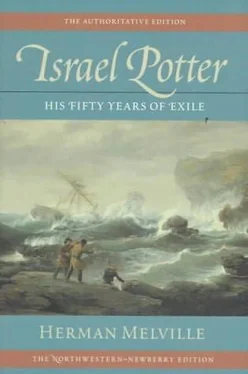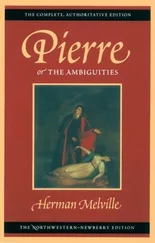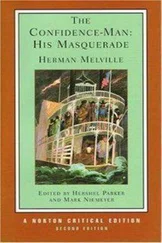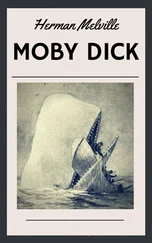Herman Melville - Israel Potter. Fifty Years of Exile
Здесь есть возможность читать онлайн «Herman Melville - Israel Potter. Fifty Years of Exile» весь текст электронной книги совершенно бесплатно (целиком полную версию без сокращений). В некоторых случаях можно слушать аудио, скачать через торрент в формате fb2 и присутствует краткое содержание. Жанр: Классическая проза, на английском языке. Описание произведения, (предисловие) а так же отзывы посетителей доступны на портале библиотеки ЛибКат.
- Название:Israel Potter. Fifty Years of Exile
- Автор:
- Жанр:
- Год:неизвестен
- ISBN:нет данных
- Рейтинг книги:4 / 5. Голосов: 1
-
Избранное:Добавить в избранное
- Отзывы:
-
Ваша оценка:
- 80
- 1
- 2
- 3
- 4
- 5
Israel Potter. Fifty Years of Exile: краткое содержание, описание и аннотация
Предлагаем к чтению аннотацию, описание, краткое содержание или предисловие (зависит от того, что написал сам автор книги «Israel Potter. Fifty Years of Exile»). Если вы не нашли необходимую информацию о книге — напишите в комментариях, мы постараемся отыскать её.
Israel Potter. Fifty Years of Exile — читать онлайн бесплатно полную книгу (весь текст) целиком
Ниже представлен текст книги, разбитый по страницам. Система сохранения места последней прочитанной страницы, позволяет с удобством читать онлайн бесплатно книгу «Israel Potter. Fifty Years of Exile», без необходимости каждый раз заново искать на чём Вы остановились. Поставьте закладку, и сможете в любой момент перейти на страницу, на которой закончили чтение.
Интервал:
Закладка:
Desperate with want, Israel resolved to turn brickmaker, nor did he fear to present himself as a stranger, nothing doubting that to such a vocation his rags would be accounted the best letters of introduction.
To be brief, he accosted one of the many surly overseers, or taskmasters of the yard, who, with no few pompous airs, finally engaged him at six shillings a week, almost equivalent to a dollar and a half. He was appointed to one of the mills for grinding up the ingredients. This mill stood in the open air. It was of a rude, primitive, Eastern aspect, consisting of a sort of hopper, emptying into a barrel-shaped receptacle. In the barrel was a clumsy machine turned round at its axis by a great bent beam, like a well-sweep, only it was horizontal; to this beam, at its outer end, a spavined old horse was attached. The muddy mixture was shovelled into the hopper by spavined-looking old men, while, trudging wearily round and round, the spavined old horse ground it all up till it slowly squashed out at the bottom of the barrel, in a doughy compound, all ready for the moulds. Where the dough squeezed out of the barrel a pit was sunken, so as to bring the moulder here stationed down to a level with the trough, into which the dough fell.
Israel was assigned to this pit. Men came to him continually, reaching down rude wooden trays, divided into compartments, each of the size and shape of a brick. With a flat sort of big ladle, Israel slapped the dough into the trays from the trough; then, with a bit of smooth board, scraped the top even, and handed it up. Half buried there in the pit, all the time handing those desolate trays, poor Israel seemed some gravedigger, or churchyard man, tucking away dead little innocents in their coffins on one side, and cunningly disinterring them again to resurrectionists stationed on the other.
Twenty of these melancholy old mills were in operation. Twenty heartbroken old horses, rigged out deplorably in cast-off old cart harness, incessantly tugged at twenty great shaggy beams; while from twenty half-burst old barrels, twenty wads of mud, with a lava-like course, gouged out into twenty old troughs, to be slapped by twenty tattered men into the twenty-times-twenty battered old trays.
Ere entering his pit for the first, Israel had been struck by the dismally devil-may-care gestures of the moulders. But hardly had he himself been a moulder three days, when his previous sedateness of concern at his unfortunate lot, began to conform to the reckless sort of half jolly despair expressed by the others. The truth indeed was, that this continual, violent, helter-skelter slapping of the dough into the moulds, begat a corresponding disposition in the moulder, who, by heedlessly slapping that sad dough, as stuff of little worth, was thereby taught, in his meditations, to slap, with similar heedlessness, his own sadder fortunes, as of still less vital consideration. To these muddy philosophers, men and bricks were equally of clay. "What signifies who we be-dukes or ditchers?" thought the moulders; "all is vanity and clay."
So slap, slap, slap, care-free and negligent, with bitter unconcern, these dismal desperadoes flapped down the dough. If this recklessness were vicious of them, be it so; but their vice was like that weed which but grows on barren ground; enrich the soil, and it disappears.
For thirteen weary weeks, lorded over by the taskmaster, Israel toiled in his pit. Though this condemned him to a sort of earthy dungeon, or gravedigger's hole, while he worked, yet even when liberated to his meals, naught of a cheery nature greeted him. The yard was encamped, with all its endless rows of tented sheds, and kilns, and mills, upon a wild waste moor, belted round by bogs and fens. The blank horizon, like a rope, coiled round the whole.
Sometimes the air was harsh and bleak; the ridged and mottled sky looked scourged, or cramping fogs set in from sea, for leagues around, ferreting out each rheumatic human bone, and racking it; the sciatic limpers shivered; their aguish rags sponged up the mists. No shelter, though it hailed. The sheds were for the bricks. Unless, indeed, according to the phrase, each man was a "brick," which, in sober scripture, was the case; brick is no bad name for any son of Adam; Eden was but a brickyard; what is a mortal but a few luckless shovelfuls of clay, moulded in a mould, laid out on a sheet to dry, and ere long quickened into his queer caprices by the sun? Are not men built into communities just like bricks into a wall? Consider the great wall of China: ponder the great populace of Pekin. As man serves bricks, so God him, building him up by billions into edifices of his purposes. Man attains not to the nobility of a brick, unless taken in the aggregate.
Yet is there a difference in brick, whether quick or dead; which, for the last, we now shall see.
CHAPTER XXIV
CONTINUED
All night long, men sat before the mouth of the kilns, feeding them with fuel. A dull smoke-a smoke of their torments-went up from their tops.
It was curious to see the kilns under the action of the fire, gradually changing color, like boiling lobsters. When, at last, the fires would be extinguished, the bricks being duly baked, Israel often took a peep into the low vaulted ways at the base, where the flaming fagots had crackled.
The bricks immediately lining the vaults would be all burnt to useless scrolls, black as charcoal, and twisted into shapes the most grotesque; the next tier would be a little less withered, but hardly fit for service; and gradually, as you went higher and higher along the successive layers of the kiln, you came to the midmost ones, sound, square, and perfect bricks, bringing the highest prices; from these the contents of the kiln gradually deteriorated in the opposite direction, upward. But the topmost layers, though inferior to the best, by no means presented the distorted look of the furnace-bricks. The furnace-bricks were haggard, with the immediate blistering of the fire-the midmost ones were ruddy with a genial and tempered glow-the summit ones were pale with the languor of too exclusive an exemption from the burden of the blaze.
These kilns were a sort of temporary temples constructed in the yard, each brick being set against its neighbor almost with the care taken by the mason. But as soon as the fire was extinguished, down came the kiln in a tumbled ruin, carted off to London, once more to be set up in ambitious edifices, to a true brickyard philosopher, little less transient than the kilns.
Sometimes, lading out his dough, Israel could not but bethink him of what seemed enigmatic in his fate. He whom love of country made a hater of her foes-the foreigners among whom he now was thrown-he who, as soldier and sailor, had joined to kill, burn and destroy both them and theirs-here he was at last, serving that very people as a slave, better succeeding in making their bricks than firing their ships. To think that he should be thus helping, with all his strength, to extend the walls of the Thebes of the oppressor, made him half mad. Poor Israel! well-named-bondsman in the English Egypt. But he drowned the thought by still more recklessly spattering with his ladle: "What signifies who we be, or where we are, or what we do?" Slap-dash! "Kings as clowns are codgers-who ain't a nobody?" Splash! "All is vanity and clay."
CHAPTER XXV
IN THE CITY OF DIS
At the end of his brickmaking, our adventurer found himself with a tolerable suit of clothes-somewhat darned-on his back, several blood-blisters in his palms, and some verdigris coppers in his pocket.
Forthwith, to seek his fortune, he proceeded on foot to the capital, entering, like the king, from Windsor, from the Surrey side.
It was late on a Monday morning, in November-a Blue Monday-a Fifth of November-Guy Fawkes' Day! — very blue, foggy, doleful and gunpowdery, indeed, as shortly will be seen, that Israel found himself wedged in among the greatest everyday crowd which grimy London presents to the curious stranger: that hereditary crowd-gulf-stream of humanity-which, for continuous centuries, has never ceased pouring, like an endless shoal of herring, over London Bridge.
Читать дальшеИнтервал:
Закладка:
Похожие книги на «Israel Potter. Fifty Years of Exile»
Представляем Вашему вниманию похожие книги на «Israel Potter. Fifty Years of Exile» списком для выбора. Мы отобрали схожую по названию и смыслу литературу в надежде предоставить читателям больше вариантов отыскать новые, интересные, ещё непрочитанные произведения.
Обсуждение, отзывы о книге «Israel Potter. Fifty Years of Exile» и просто собственные мнения читателей. Оставьте ваши комментарии, напишите, что Вы думаете о произведении, его смысле или главных героях. Укажите что конкретно понравилось, а что нет, и почему Вы так считаете.












